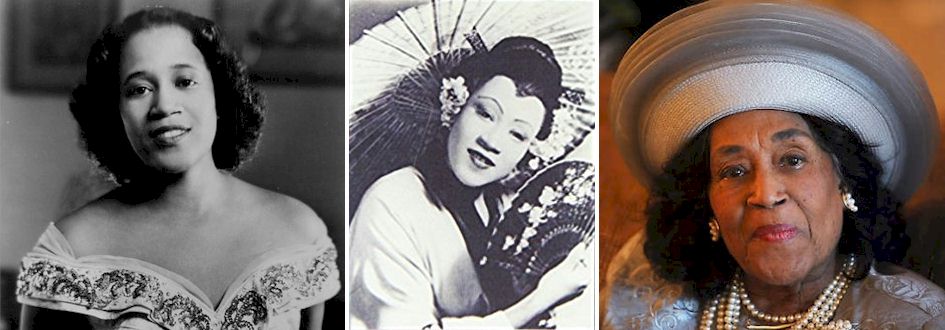Camilla Williams always wanted to be a singer and, at the age of nine, joined the junior church choir at Holbrook Street’s Calvary Baptist Church. One Sunday, she sang “Come Unto Me” for the congregation. After a few moments of silence, the pastor opined, “Today we heard a voice that will be heard around the world.” And he was right.
The Williams lived at 326 Broad Street, just two or three blocks from the Old West End. Her father worked nearby as a butler while her mother took in laundry to help support the family.
When Camilla was 12 years old, a Welsh singer by the name of Raymond Aubrey was teaching at Averett College (now Averett University). He also taught privately, and Camilla took the opportunity to sing for him. Aubrey agreed to teach her, but because of Jim Crow, the lessons had to be undertaken privately.
One of the first songs Aubrey suggested to her was from Madame Butterfly, an opera about the geisha Cho-Cho-San. However, Camilla felt it was too difficult, preferring songs that she could do well rather than songs that would be more of a struggle for her. She attributes this one decision, and the ability to know her limits, to her ultimate success.
After graduating from Langston High School, Camilla went on to study music education at Virginia State College (now Virginia State University). Upon receiving her bachelor’s degree she returned home to Danville to teach, and to resume her lessons under Mr. Aubrey. She wasn’t home long, however, when a group of Virginia State alumni offered to pay Camilla’s way to Philadelphia so that she could study under Marion Szekely Freschl, a famed operatic contralto.
In 1943 and 1944 she received the Marion Anderson award, a scholarship that allowed her to continue pursuing her dream of becoming a singer. In 1944, she sang for an audience in Stamford, Connecticut, that included the great soprano Geraldine Farrar. In 1907, Farrar was the first to play the lead role in Madame Butterfly. Miss Farrar was so captivated by Camilla’s voice that she became her mentor, connecting her with those who would eventually offer her a recording contract.
Because of Miss Farrar’s influence, Camilla was considered for the leading role of Cho-Cho-San in Madame Butterfly. However, because of the war with Japan at that time, the opera was forbidden. After the war ended, Camilla was indeed offered the role and thereby became the first African American to receive a contract from a major opera company.
For Danvillians, however, her most memorable performance was perhaps one she gave at home in 1946. Papers from the days prior to her recital were cautiously optimistic, but those that followed her performance sang a different tune. “Camilla’s Home Premier Is Vocal Gem” one headline read. “Camilla Williams … came home in triumph last night and … gave a song recital which revealed the singular quality of her voice and its compass.”
Camilla went on to tour the world. She eventually took a position as the music director at Indiana University in 1977. Upon her death in 2012, her personal effects were donated to the Danville Museum of Fine Arts and History with the hope that they would inspire and influence young people in the community.
